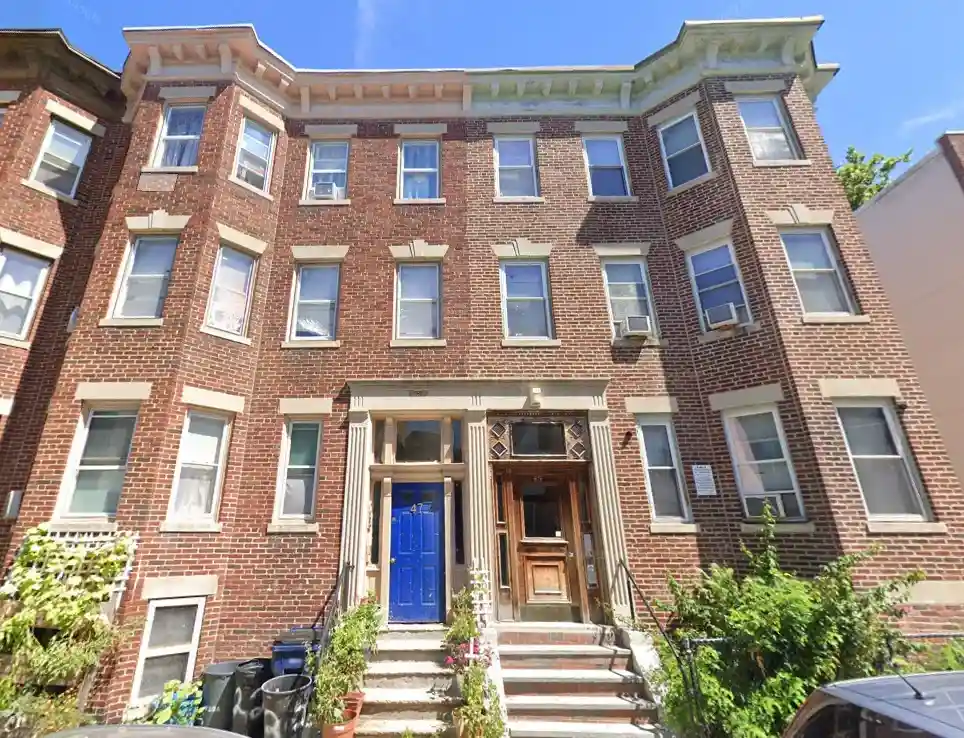
MASH-certified homes offer consistent, transparent operations that promote accountability, community, and long-term sobriety. Massachusetts Alliance for Sober Housing (MASH) serves as the primary agency for accountability of all certified homes in Massachusetts. Our organization also provides supervision and training for sober homes, and maintains a database of more than 180 MASH-certified sober homes.MASH’s recovery values emphasize health, home, purpose, and community. Successful sober homes establish and reinforce healthy lifestyles, provide a safe and stable place to live, conduct meaningful activities, and build relationships and social networks for support. Through our network of certified sober housing and empirically based recovery principles, MASH’s goal is to help create and foster these safe living environments for those with substance use disorders. MASH’s recovery values emphasize health, home, purpose, and community.
Project NORTH
- Prior to establishing his own business, Brian worked in various management positions at a contract engineering company in Boston and Los Angeles.
- All community members are subject to random drug screens and daily breathalyzing.
- Sober living homes are a vital part of the recovery journey, providing a safe, supportive, and structured environment for individuals transitioning from treatment to independent living.
- Neighborhood associations and local governments engage with operators to address concerns such as safety or community impact.
- Public hearings and meetings provide platforms for dialogue, balancing the needs of residents and the broader community.
Repeated violations may lead to Twelve-step program court orders mandating compliance or temporary closures until issues are resolved. Mount Vernon is a prominent city in New York with a rich network of Recovery House facilities. If you or a loved one is struggling to afford sober living, the ATR program could provide the financial assistance needed to continue your recovery journey.
- In accordance with this requirement, MASH serves as the primary agency for accountability of all certified homes in Massachusetts.
- They promote a social model of graduated care, designed to return women complete, sober functioning individuals.
- Faith House #3 is an all male recovery house located in Dorchester, MA.
- Policies and procedures that keep residents’ records secure, with access limited to authorized staff.
- There are many individuals with the disease of addiction, and there are too few safe and sober environments for them to recover in, resulting in fatal circumstances.
Food and Housing Resources
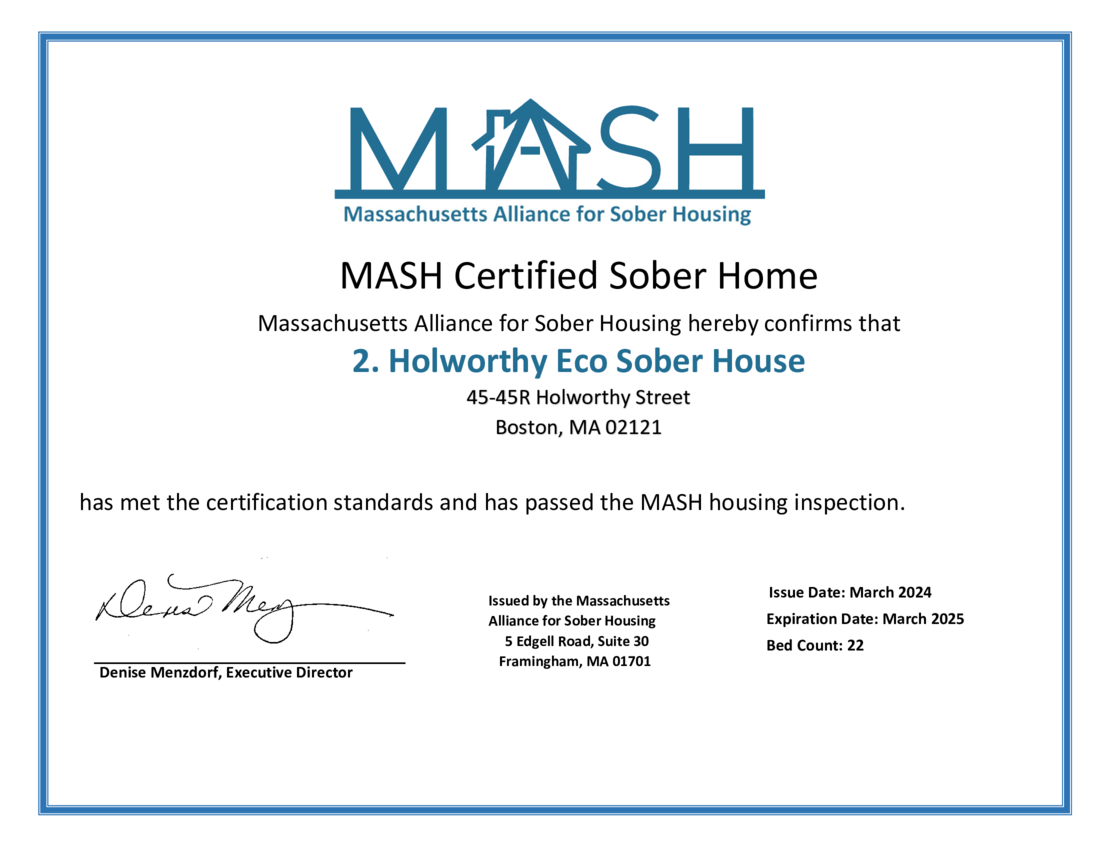
Compliance is monitored through regular inspections and audits by MASH. These evaluations ensure continued adherence to certification criteria. Identified deficiencies must be addressed to maintain certification, reinforcing a commitment to quality care and support. 24.b Ongoing performance support and training are provided for staff. (v) verify good standing with regard to local, state and federal laws and any regulations and ordinances including, but not mash sober houses limited to, building, maximum occupancy, fire safety and sanitation codes.
Sober House Operators in Boston, Massachusetts
29.d Documentation that residents are formally linked with the community such as job search, education, family services, health and/or housing programs. Funds are used for rental vouchers to pay weekly rent to certified sober homes. Chapter 165, Section 37 of the Acts of 2014 required the Department of Public Health (DPH) to establish a process for the voluntary certification of alcohol and drug free (ADF) housing. This legislation limits state agencies and their vendors to referring to certified ADF housing. DPH awarded a contract to the Massachusetts Alliance for Sober Housing (MASH) to be the certifying body, and the training and technical assistance vendor.
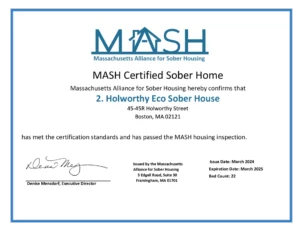
Peer support interactions among residents are facilitated to expand responsibilities for personal and community recovery. Grievance policy and procedures, including the right to take grievances that are not resolved by the house leadership to the operation’s oversight organization for mediation. Our innovative four-phase program is a safe haven for individuals who are in recovery from substance-use disorders. Transitional housing is temporary housing for the working homeless population and is set up to transition their residents to permanent housing. Your support and contributions will directly impact our Recovery Community.
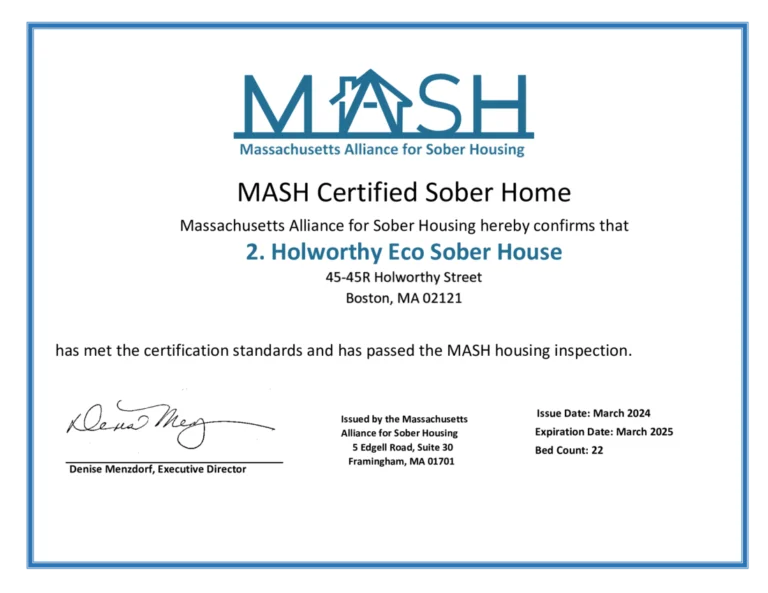
Recovery Houses of Westchester
The commissioner of probation shall inform all district and superior court probation officers and the chief justice of the trial court shall inform all district and superior court judges on how to access the list. The list shall also be posted on the website established pursuant to section 18. (b) The bureau shall establish and provide for the administration of a voluntary training and accreditation program for operators of alcohol and drug free housing seeking certification under subsection (d). If approved, ATR funding will be paid directly to the sober house to cover housing costs.
Rise Above is led by women for women who are committed to your success in maintaining sobriety.
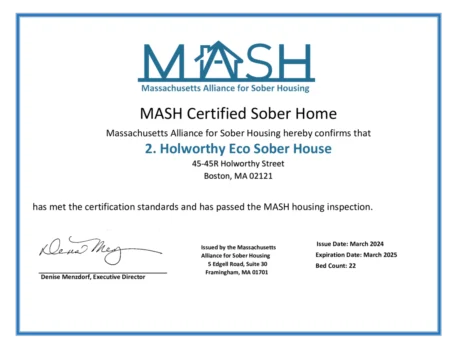
For Massachusetts women seeking financial support through their journey of recovery. Failure to secure adequate insurance exposes operators to financial liabilities and legal challenges. In the event of a lawsuit or claim, uninsured operators may face substantial expenses, jeopardizing the operation of the sober house and resident well-being. Transition (e.g. entry, phase movement and exit) rituals promote residents’ sense of belonging and confer progressive status and increasing opportunities within the recovery living environment and community. In July 2014, Bill H.1828 was passed into law mandating the monitoring and voluntary certification of MA Sober Homes.
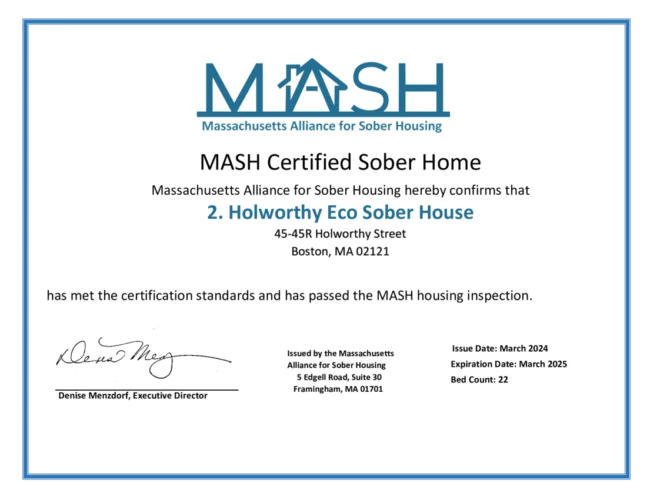
MASH is an affiliate of NARR and used these standards to create Massachusetts standards for certified sober homes. NARR has since released two updates to the standards, first in October 2015 and then in 2018. The third version of the NARR standards provides more explicit guidance to providers, including metrics for evaluating the peer support components of a residence’s recovery environment. Through our network of certified sober housing and empirically-based recovery principles, MASH’s goal is to help create and foster safe living environments for those with substance use disorders. Vanderburgh Sober Living (VSL) has established a significant presence in Taunton, Massachusetts, through its partnership with Zero Tolerance Sober Living. This collaboration operates MASH-certified recovery residences, including the Union Men’s Sober House and the Harrison Women’s Sober House, offering structured sober housing in Taunton.
These homes provide supportive environments for individuals committed to maintaining sobriety, integrating into Taunton’s robust recovery community. Residents have access to local support groups, employment opportunities, and public transportation, facilitating their recovery journeys. The Probation/Parole Grant Program in Massachusetts is designed to support individuals transitioning from incarceration to sober living environments. Vanderburgh Sober Living (VSL) has expanded its commitment to structured sober housing in Lowell, Massachusetts, through the establishment of the Rogers Sober House for women.
The Massachusetts Alliance for Sober Housing was founded in 2007 to create structure and accountability within the state’s sober living community. Originally a grassroots effort by local sober home operators, MASH grew in response to the need for consistent housing standards that prioritize resident safety and recovery outcomes. In 2011, MASH became the official Massachusetts affiliate of the National Alliance for Recovery Residences (NARR), adopting national standards and launching a formal certification program. Today, MASH plays a central role in recovery housing policy, provider training, and state-level coordination, certifying over 180 homes across Massachusetts. In Massachusetts, sober homes and recovery residences are different models for substance abuse recovery. Recovery residences — formerly known as halfway houses — are licensed residential treatment programs, while Massachusetts sober homes are peer-led and do not provide treatment.




